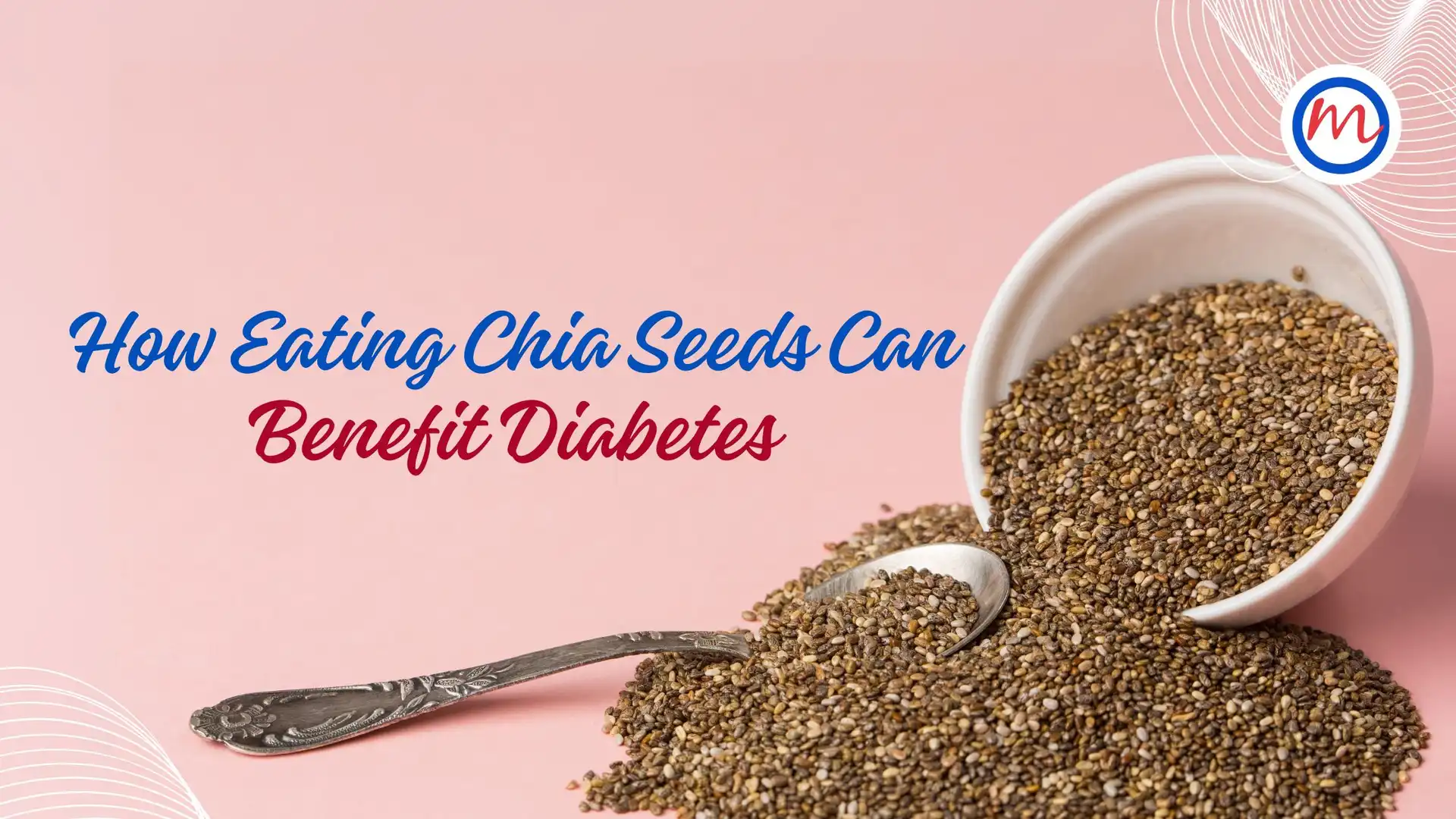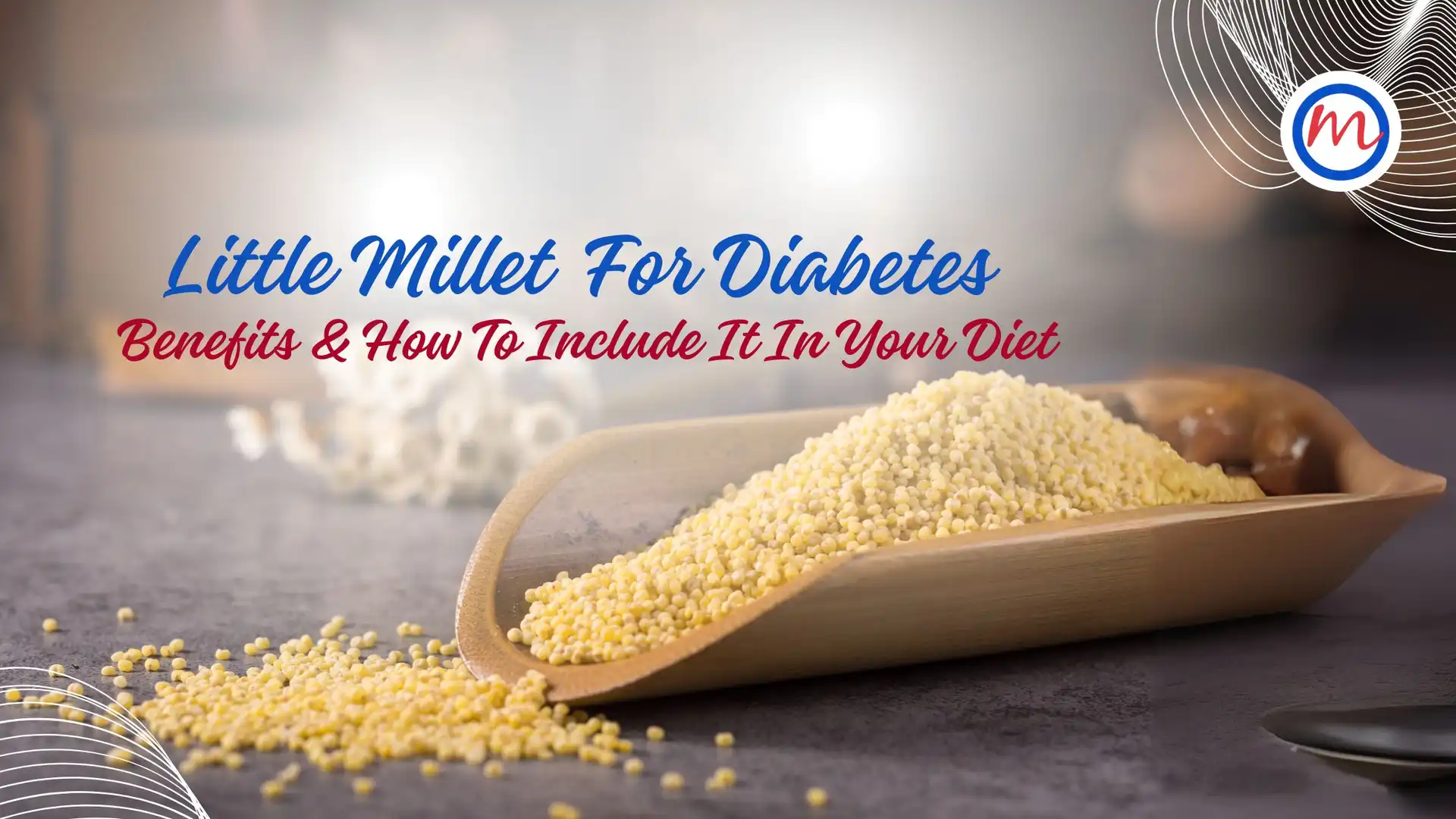How Eating Chia Seeds Can Benefit Diabetes
Chia seeds have gained popularity as a superfood due to their impressive nutrient profile and health benefits. For individuals with diabetes in India, these tiny seeds can be a valuable addition to the diet. Packed with fibre, healthy fats, protein and antioxidants, chia seeds help regulate blood sugar levels, improve heart health and promote overall well-being. In this article, we explore how chia seeds can benefit people with diabetes and how to incorporate them into a balanced Indian diet.
Nutritional Profile of Chia Seeds
Chia seeds (Salvia hispanica) are nutrient-dense and offer multiple health benefits. A 28-gram (one-ounce) serving of chia seeds contains:
- Fibre: 10-11 grams
- Protein: 4 grams
- Healthy Fats: 9 grams (including omega-3 fatty acids)
- Magnesium: 23% of the daily value (DV)
- Calcium: 18% of the DV
- Antioxidants: Protect against oxidative stress
This unique composition makes chia seeds an excellent food choice for managing diabetes and promoting overall metabolic health.
How Chia Seeds Benefit Diabetes Management
-
Helps Regulate Blood Sugar Levels
Chia seeds are rich in soluble fibre, which slows down the digestion and absorption of carbohydrates. This helps prevent sudden spikes in blood sugar levels after meals, making them beneficial for individuals with type 2 diabetes. Studies have shown that consuming chia seeds can improve insulin sensitivity and lower post-meal blood sugar levels.
-
High Fibre Content Improves Digestive Health
Fibre is essential for digestive health, and chia seeds provide a significant amount per serving. The gel-like consistency they form when soaked in water helps slow digestion, leading to better glucose control. Moreover, fibre supports gut health by promoting the growth of beneficial bacteria.
-
Aids in Weight Management
Maintaining a healthy weight is crucial for diabetes management. Chia seeds are highly satiating due to their high fibre and protein content, reducing overall calorie intake and preventing overeating. Their ability to absorb water and expand in the stomach can create a feeling of fullness, which may support weight loss efforts.
-
Rich in Omega-3 Fatty Acids for Heart Health
Individuals with diabetes are at a higher risk of heart disease. Chia seeds are an excellent plant-based source of omega-3 fatty acids, which help reduce inflammation, lower bad (LDL) cholesterol and improve heart health. Regular consumption of omega-3s can reduce the risk of cardiovascular complications associated with diabetes.
-
Lowers Blood Pressure
High blood pressure is a common concern for people with diabetes. Studies suggest that the nutrients in chia seeds, including magnesium and omega-3 fatty acids, may contribute to lower blood pressure levels. By improving circulation and reducing arterial stiffness, chia seeds support cardiovascular health.
-
Provides Essential Minerals for Metabolic Health
Magnesium plays a vital role in glucose metabolism and insulin function. Chia seeds are a good source of magnesium, which can help individuals with diabetes maintain stable blood sugar levels. Additionally, the calcium content in chia seeds supports bone health, which is particularly important for individuals at risk of osteoporosis.
How to Include Chia Seeds in an Indian Diabetes-Friendly Diet
Adding chia seeds to your daily diet is simple. Here are some easy ways to incorporate them into traditional Indian meals:
-
Chia Seed Water (Sabja-Like Drink)
Soak one tablespoon of chia seeds in a glass of water for about 30 minutes. Add a dash of lemon juice for flavour and drink it in the morning to stay hydrated and support digestion.
-
Chia Pudding with Indian Flavours
Mix chia seeds with warm milk (cow’s milk or almond milk) and let them soak overnight. Add cinnamon, elaichi (cardamom), or a pinch of haldi (turmeric) for a traditional touch.
-
Chia in Buttermilk or Lassi
Stir chia seeds into a glass of homemade buttermilk or lassi for a refreshing and nutritious drink.
-
Chia-Enhanced Roti or Paratha
Mix ground chia seeds into whole wheat atta (flour) while preparing rotis or parathas to boost fibre intake without altering the taste.
-
Chia in Upma or Poha
Sprinkle chia seeds into upma or poha to enhance its nutritional value while keeping the meal light and diabetes-friendly.
-
Chia-Infused Chutneys or Curries
Add finely ground chia seeds to coconut chutney or gravies to thicken them naturally while improving their nutritional benefits.
-
Chia with Oats or Dalia (Broken Wheat Porridge)
Combine chia seeds with oats or dalia for a wholesome, slow-digesting breakfast that helps regulate blood sugar levels.
Precautions and Considerations
While chia seeds are beneficial for diabetes management, it is essential to consume them in moderation. Some key considerations include:
- Watch Portion Sizes: Eating too many chia seeds can lead to excessive fibre intake, potentially causing bloating or digestive discomfort.
- Stay Hydrated: Since chia seeds absorb water and expand, drinking sufficient fluids is crucial to prevent digestive issues.
- Monitor Blood Sugar Levels: If you are on medication for diabetes, consult a healthcare professional before adding chia seeds to your diet to avoid potential interactions.
Conclusion
Chia seeds are a nutrient-rich superfood that can be a valuable addition to an Indian diabetes-friendly diet. Their high fibre content, ability to regulate blood sugar levels and heart-health benefits make them particularly beneficial for individuals managing diabetes. By incorporating chia seeds into traditional Indian meals and maintaining a balanced diet, people with diabetes can enjoy improved metabolic health and overall well-being. Always consult with a healthcare professional before making dietary changes to ensure they align with your specific health needs.



